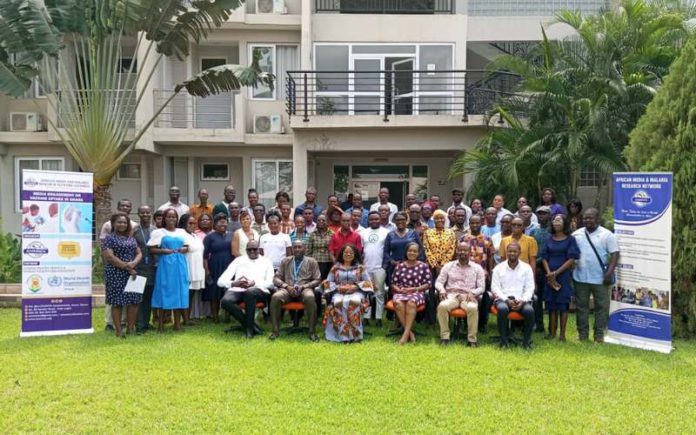The Executive Secretary of the African Media and Malaria Research Network (AMMREN), Dr. Charity Binka, has spoken passionately about the indispensable role that media plays in advocating for vaccine uptake.
She underscored the significance of collaboration between health authorities and media outlets to address public hesitancy surrounding vaccines.
She made this known at a training workshop for journalists aimed to equip media professionals with the tools and knowledge to effectively communicate the importance of vaccination to the public.
Ghana has made remarkable progress in combatting six major diseases that once posed significant threats to its population, particularly among vulnerable demographics. Through the diligent implementation of vaccination campaigns, these diseases have been effectively curbed across the nation.
Vaccines are widely acknowledged as indispensable tools in public health. They not only offer protection against a range of diseases but also represent a cost-effective and reliable means of preventing illness and saving lives.
In Ghana, immunization programs target a spectrum of diseases including tuberculosis, polio, measles, rubella, yellow fever, meningitis, and malaria in children.
AMMREN is deeply committed to promoting vaccine uptake in Ghana, recognizing the pivotal role that vaccines play in preventing malaria infections and mitigating associated morbidity and mortality rates.
The endeavor to increase vaccine uptake in Ghana transcends mere health considerations; it is integral to securing the well-being and prosperity of the nation’s populace.
Significant strides have been made in eliminating childhood vaccine-preventable diseases such as neonatal tetanus and polio. Additionally, concerted efforts have resulted in notable reductions in diseases like measles, pneumonia, and diarrhoea among children.
The successful implementation of vaccination campaigns, coupled with strengthened health systems, has contributed to a remarkable decline in under-five mortality rates. From 111 deaths per 1000 live births in 2003, the rate plummeted to 40 deaths per 1000 live births by 2022.
Key initiatives such as the Men A Campaign in 2012 and subsequent routine immunization drives have been instrumental in achieving these favourable outcomes.
The narrative of Ghana’s public health journey underscores the critical importance of sustained efforts to promote widespread vaccination coverage.
It is a testament to the efficacy of collective action and underscores the imperative of continued collaboration between stakeholders to safeguard the health and prosperity of the Ghanaian population.

